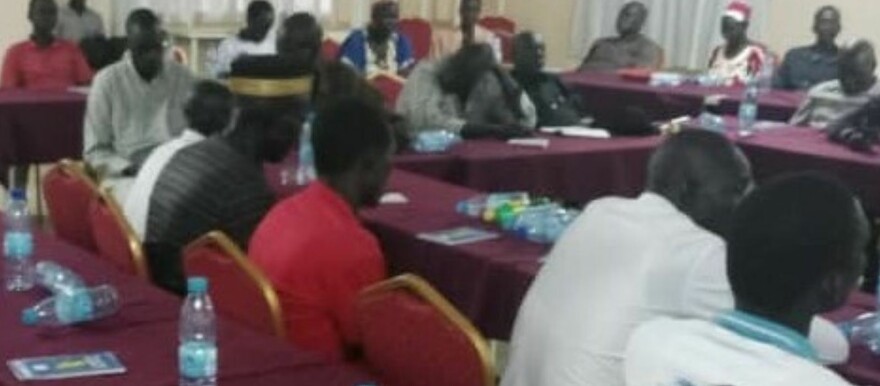The Ministry of Health in Lakes State, in partnership with health partners, has organized a workshop aimed at facilitating the distribution of mosquito nets across the state after a scheduled Training of Trainers (TOT) session set for the coming week.
This program, recurring every three years, spans all ten states and administrative areas within South Sudan.
Dr. Akim Makuer, the Director General of the Ministry of Health in Lakes State, highlighted the significance of the engagement, stating, “The meeting was meant for us to understand why mosquito nets are late this year… but now things are clear and possibly in a few days to come, everybody will have a mosquito net in their respective houses to protect their children and themselves from malaria.”
“We have set up a team in the state and we will go down to the county level where a Training of Trainers (TOT) will be conducted at the county headquarters. All eight (8) county registrars and the team that will do the work will be engaged. Once they have completed the training, they will start the distribution immediately within the month of August,” he added.
Ding Mario, a government representative, emphasized the importance of responsible net usage. “We need to take good care of the mosquito nets that are given to us. We don’t want to misuse these mosquito nets because they are very important in improving the lives of our children.” She issued a stern warning against the misuse of mosquito nets, especially the problem of free mosquito nets ending up in the markets rather than in homes.
Dr. Kediende Chong, Director General for Policy Planning, Budget Research, Monitoring and Evaluation at the National Ministry of Health, stressed the campaign’s focus on the vulnerable members of the community. “It is a mass campaign targeting the general population, but with a special focus on children below five years of age, the lactating and pregnant mothers, the elderly people and all the vulnerable,” he explained.
Lauding the attendance of senior national and state-level government officials, which signified commitment, and support, Dr. Kediende shared what is critical in the project, stating, “What is key here is that the distribution will be door-to-door distribution, but more importantly, it’s going to be digitally done. So the volunteers that will be doing the distribution will be selected from the local community. It is based on specific criteria because they are going to use digital tools and they will be trained on how to use the digital tools and report the distribution.”
David Oyem Oho, Health Link South Sudan representative, detailed the distribution strategy. “This mosquito net is the property of the government of the Republic of South Sudan and is supposed to be given free of charge… We will have specific groups of people we will work with… a team at the payam level that will be supervisors at the payam level headed by the county department and Boma where we shall have a team that will be selected from the villages.”
Malual Wentok, a participant, underscored the key messages conveyed during the meeting. “First of all we are told that every house will get mosquito nets… [They] should not be sold in the market, so if anyone is found selling them the law should take its course on such a person selling this mosquito net.”




